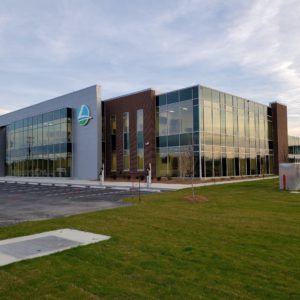


We offer a number of assistance programs to help our members keep their lights on. If you’re having trouble paying your bill, we can help. This can help you better manage your budget and avoid surprises when your bill arrives. With budget billing, you pay the same amount each month, based on your average monthly usage. We also offer a budget billing program to help level out your monthly payments. You can pay your bill online, by phone, or in person at any of our office locations.

That’s why we offer a variety of payment options to make paying your bill easy and convenient. We understand that paying your electric bill can be a hassle.

We are committed to providing safe, reliable, and affordable electricity to our members. Shawn Hunt is the interim president and CEO of Lumbee River EMC.The Lumbee River Electric Membership Corporation is a member-owned, not-for-profit electric cooperative serving Hoke, Cumberland, Robeson, and Bladen counties in North Carolina. We will continue to work with policymakers and those who are deploying broadband to ensure that access is expanded to our entire state, while advocating against policy changes that could burden rural consumers with unfair costs. We look forward to seeing broadband access extend to unserved areas in North Carolina. It is in the best interest of rural people and communities to ensure that new federal and state funding is applied as intended to cover expanded access and that rural co-op members are not burdened with unfair costs.Īs a not-for-profit, community-owned organization, LREMC and other electric cooperatives remain focused on keeping costs as low as possible for members and supporting efforts that bring opportunity and prosperity to our communities. In January, the Federal Communications Commission declined to issue the cost-shifting rules that the special interests seek, noting that the issue is complex and requires more thoughtful consideration. Not-for-profit co-ops – and their members – should not be expected to subsidize broadband deployment costs, especially after more than $140 million in funding has been awarded for broadband expansion in North Carolina. Should this bill pass, special interests would receive more funding for their shareholders at the expense of rural consumers and further burden the very people who expanded rural broadband is intended to help. Unfortunately, with the backing of a Fortune 100, for-profit cable company, a bill has been filed in the North Carolina legislature that would shift costs to “make ready” utility poles for new broadband infrastructure to electric co-ops and their members. Admittedly expansion has been slow, but LREMC has taken this approach to ensure that our efforts have as little impact on our rates as possible. Also, LREMC has made our existing electric utility poles available to other communication providers through pole attachments agreements to hasten the deployment of broadband access across our service area. In conjunction with Connected Technologies LLC, LREMC began to offer Bluewave fiber connections just under a decade ago to meet our rural communities’ needs. Rural communities have long-awaited high-speed connections because for-profit cable providers have been unwilling to invest in broadband infrastructure in sparsely populated areas.ĭespite that challenge, electric cooperatives for years have supported efforts to close the digital divide by exploring local solutions and facilitating the expansion of access to broadband providers to utility poles quickly and at a fair rate. It is critical that rural broadband expand quickly, efficiently, and fairly – and that as grant funding creates a new market for broadband providers in our communities, we join together to reject efforts by for-profit special interests that would shift costs to North Carolina’s rural consumers. As the President and CEO of Lumbee River EMC (LREMC), an electric cooperative serving rural members in Robeson, Scotland, Hoke, Moore, and Cumberland Counties, I am grateful that more than $140 million in state and federal funding has recently been awarded to connect unserved and underserved rural residents in our state. While the pandemic has shone a bright light on the need for expanded rural broadband, the issue is something that we in rural areas have prioritized for many years.


 0 kommentar(er)
0 kommentar(er)
